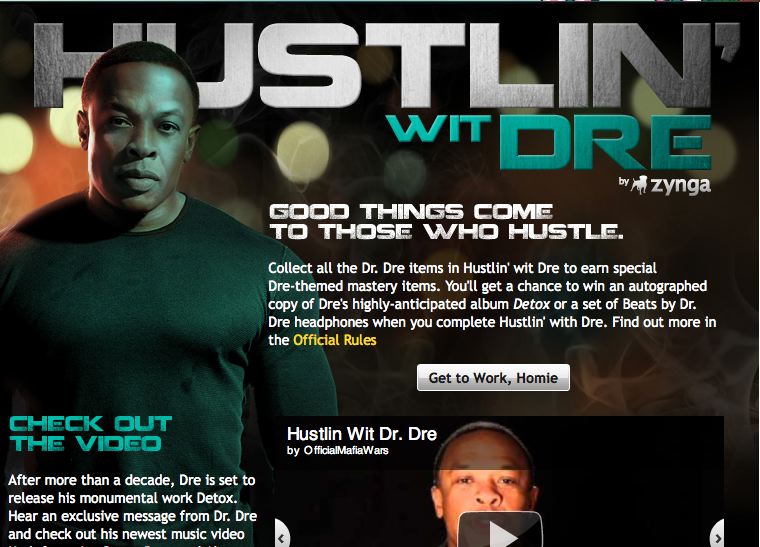Facebook games turn to celebs to bring the noise - will it work?

In the past week, Zynga debuted rapper Dr. Dre’s video for his new single 'Kush' in Mafia Wars; Kobe Bryant signed on with 6waves to make his very own social game; and mega-author James Patterson released James Patterson: Catch a Killer. Earlier this year, Zynga used Snoop Dogg in a publicity stunt to promote a Mafia Wars expansion, and Booyah’s Nightclub City streamed an entire KISS concert live inside the game.
What this means is that Facebook games have clearly adopted the time-honored tradition of using famous faces to create high-profile celebrity tie-ins.
While having celebrities endorse your social game has a certain sex appeal -- does it actually work? If we’ve learned anything from the traditional video game space (you know, games played on Xbox 360, PlayStation 3, etc) -- a star-studded endorsement doesn’t necessarily equal instant success. Sometimes it’s just the opposite.
A few celebrified stinkers off the top of my head include renowned action director John Woo’s disastrous video game Stranglehold, which starred Chow Yun-Fat and promised all of the same awesome slo-mo shooting sequences that you’d see in one of his movies like Hard Boiled or A Better Tomorrow -- but in reality, it was just a huge sloppy mess. Rapper 50 cent also has lent his name, likeness and music to two video games, the first earned an average score of 50/100 on Metacritic. The second scored a little higher, but I’d argue that’s because the game was unintentionally funny rather than really amazing. Then there’s Halle Berry in Catwoman, Drew Barrymore, Lucy Liu and Cameron Diaz in Charlie’s Angels and Shaquille O'Neal’s Shaq Fu, which is so derided that there’s a website devoted to destroying all copies in existence.
While I’m sure that celebs will help Facebook games get more ink from blogs and other publications, it still seems unlikely that it will turn someone who dislikes these types of games into a fan. (If you've survived the FarmVille Spamgate, you're more than aware of the public's love/hate relationship with social games.)
To its credit, though, Mafia Wars, seems to have learned from its flubbed Snoop Dogg promotion a few months ago and has done a much better job with its current Dr. Dre promotion. In addition to watching Dre’s new music video, there’s also a cleverly integrated mini-game where you complete a mission to earn exclusive in-game items and enter a contest to win a pair of Beats by Dre headphones. It might not help Mafia Wars' declining numbers, but maybe Zynga and other Facebook game makers have, again, quickly picked up something that it took video game makers years to figure out.
